Hugo Friedhofer 1901-1981 / Fact Sheet
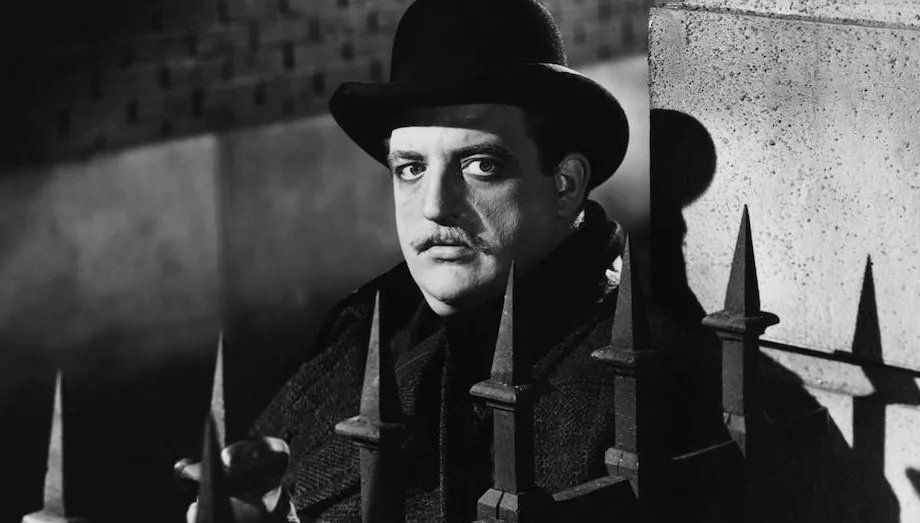
One of the finest orchestrators of Hollywood’s Golden Age was Hugo Friedhofer, who worked on hundreds of films since 1930 as orchestrator, composer, or co-composer, mostly without screen credit. He got his start in Hollywood in 1929, becoming a session player for Fox Studios, and later moved to Warner Bros as an orchestrator, deftly expanding treatments by Max Steiner and Erich Wolfgang Korngold into full orchestral scores. In 1946, Friedhofer extricated himself from the studio system and began to freelance; his score for RKO’s THE BEST YEARS OF OUR LIVES (1946), about the homecoming of a trio of WW2 vets, won him an Oscar for best music; among eight other Oscar nominations he received during his career.
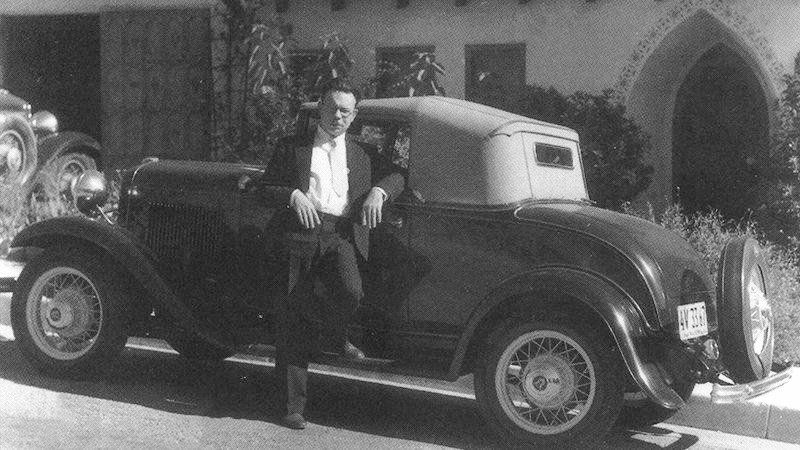
Hugo Friedhofer arrived in Hollywood in July ’29 and has composed the scores of some 70 films. He also contributed to the scores of 70 others. Indeed, he has worked as collaborator, adapter, arranger, orchestrator and utility composer* on more films than he can remember and in the highly specialized field of orchestration Friedhofer is regarded as The Master. He orchestrated more than 50 Max Steiner scores, and was the only man Erich Korngold fully trusted to touch his music (he orchestrated 15 of Korngold’s 18 film scores). Friedhofer’s film music activities have been so various it is impossible to compile a complete list of all the films he has worked on.

Hugo Friedhofer's current film score is for the Randall Hood production A WALK IN THE FOREST, a very memorable short subject documentary. So brilliant is the music, so dazzling and subtle its impact, that the impulse is to write around the score, to avoid the superlatives it evokes. It reaches to the heart of the poetry and subject of the film. i.e. “Man as Nature's partner:” few short subject features have been graced with such music. Friedhofer's inner vision of both the colors and shapes of “Nature's stern economy,” are beautifully limned against the gossamer-like eloquence of his melodic contours. His score is a forest symphony delicately reminding us of the ritual procession of Nature in intricate harmony with man's silent involvement with that force.
Analysis
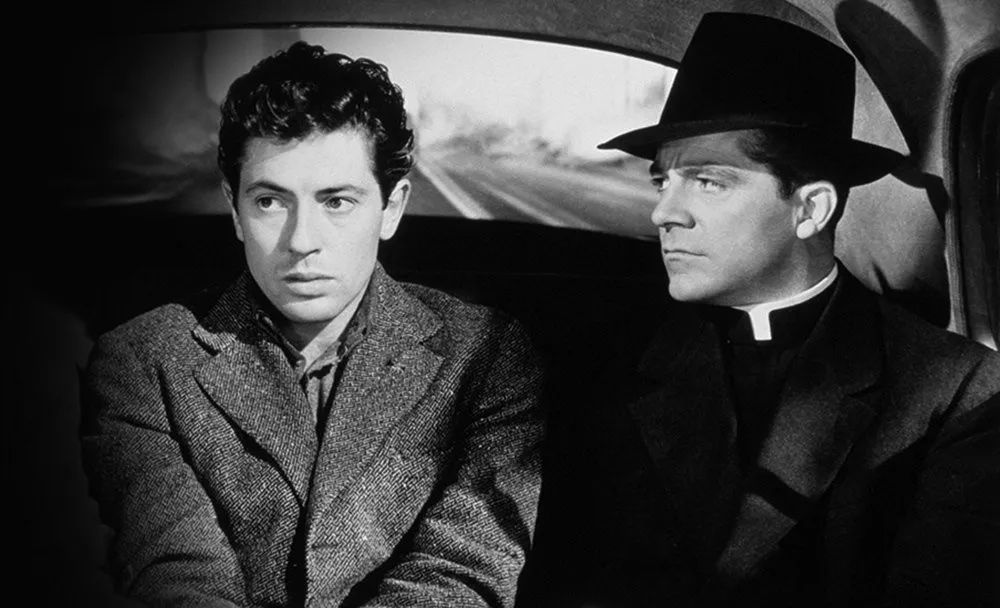
Hugo Friedhofer has again exceeded the requirements by providing not only necessary support to the scenario but also music well worth listening to in its own right. His treatment of Martin Lynn’s long-standing grudge against an elderly priest is constantly sure-handed and sensitive, and the attached excerpt is typical of the independent musical validity prevailing.

This film is a re-telling of the famous story of Joan of Arc, otherwise known as the ‘Maid of Orléans.’ She was a historical character, born around 1412 and dying at the stake 30 May 1431, and has been the subject of several films and a great deal of literature, both fact and fiction. This is one of two films used as case studies in this dissertation, the other being The Messenger: The Story of Joan of Arc (1999). They follow broadly the same plotline, although the 1948 film depicts the English as occupying Orléans, whereas The Messenger is more historically accurate, showing the French defending the city against the English.
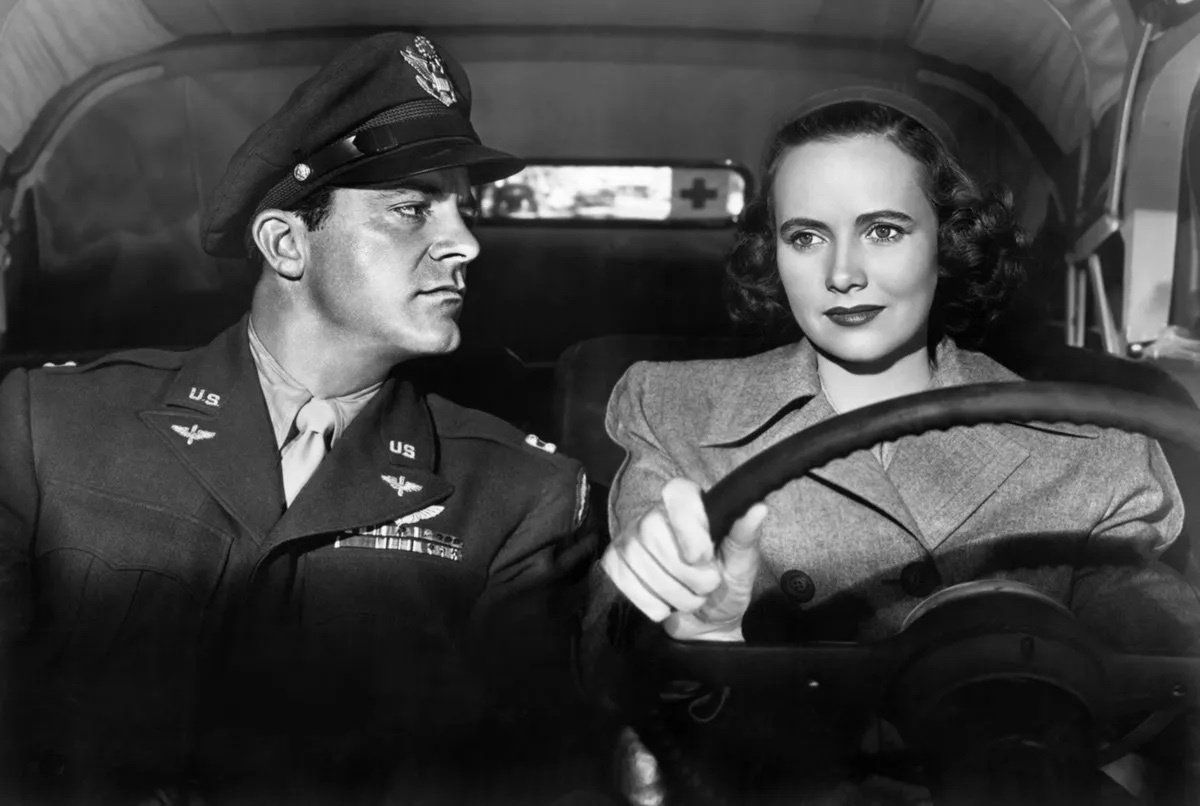
Searingly poignant and joyously tender, William Wyler’s production of THE BEST YEARS OF OUR LIVES remains a soaring testament to the sacrifice and heroism of “the greatest generation,” returning home to the uneasy reality they’d fought to preserve and protect. The country was at once grateful, and unforgiving in their welcoming of the troops who had given up their lives and dreams to fight on foreign shores. While none of the returning American soldiers had asked for thanks or for special treatment, there was a growing and lingering resentment among some who had stayed at home, embarassed by the privileges they’d continued to enjoy, while vicariously sharing a victory won by the blood and emotional scarring of others. Boys had grown to men on foreign soil. Now they returned to their own country as strangers in a strange land, gladiators humbled by the pain of readjustment to an often indifferent, mundane, and trivial existence.
Album Notes

Although all of the arts tend to prey on one another for inspiration, the cinema, and in particular Hollywood based cinema, has perhaps proven to be the least capable of spontaneous generation. For every film that has sprung from an original conception envisaged from the outset as a movie, there are at least several dozen that have been inspired from an outside source, most often a novel but sometimes a play. The BEST YEARS OF OUR LIVES is one of the few films ever made to have grown out of an epic poem.
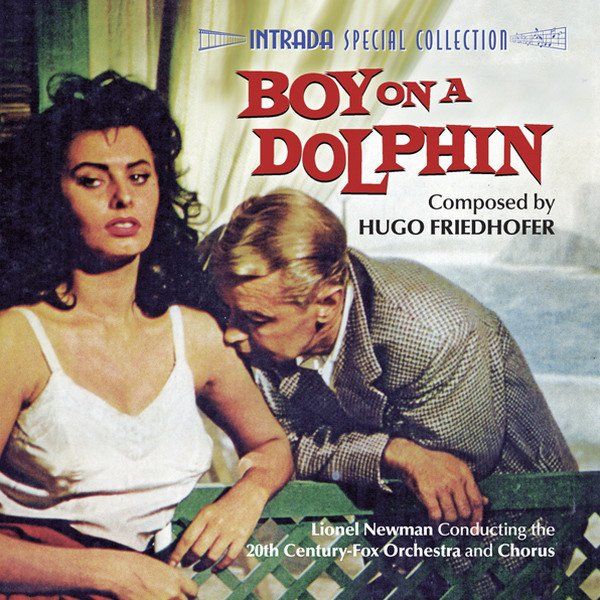
Regarding film music in general, one might say that it is not in the nature of a film score to be wholly autonomous. In this respect it differs from music written for concert hall presentation in much the same way that a design for a stage setting differs from an easel painting. For example, a film score conceived with as much detail, or as richly textured as the Fourth Symphony of Brahms (we should live so long) would not be a good film score, regardless of its supreme merits as music. Being inherently self-sufficient, it would be constantly drawing attention to itself at the expense of the drama it was intended to enhance. I do not mean to imply that music for a film should be as consistently bland and unobtrusive as the so-called “mood music” which accompanies the rattle of dishes and the buzz of small talk in a coffee shop.
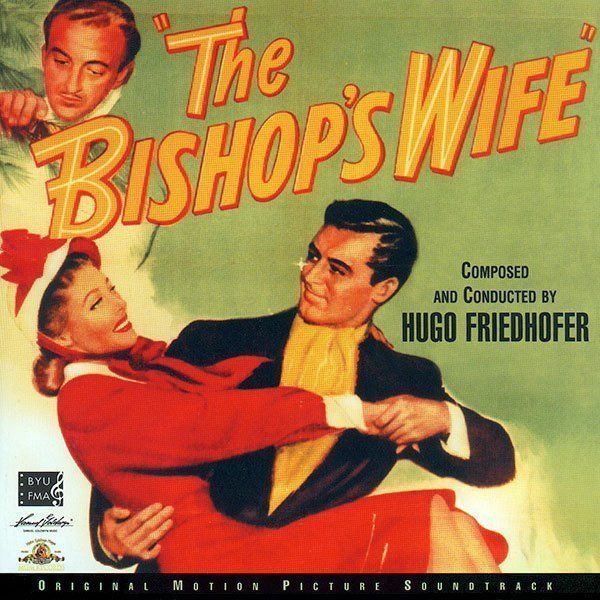
In this centennial year of Hugo Friedhofer’s birth, we are pleased to present this premiere compact disc release of music from the original tracks of THE BISHOP’S WIFE, a work that film music historian Tony Thomas regarded as the composer’s “most charming score.” This is the second Friedhofer original score in the BYU Film Music Archives Soundtrack Series following the earlier CD of BROKEN ARROW. Coming as it did only a year after his justifiably lionized Academy Award-winning score for THE BEST YEARS OUR LIVES, Friedhofer’s music for THE BISHOP’S WIFE has often been overlooked except by those listeners who were immediately drawn to its delicately toned yet surefooted enhancement of Robert Nathans tale of human goodness, weakness, and Divine intervention.
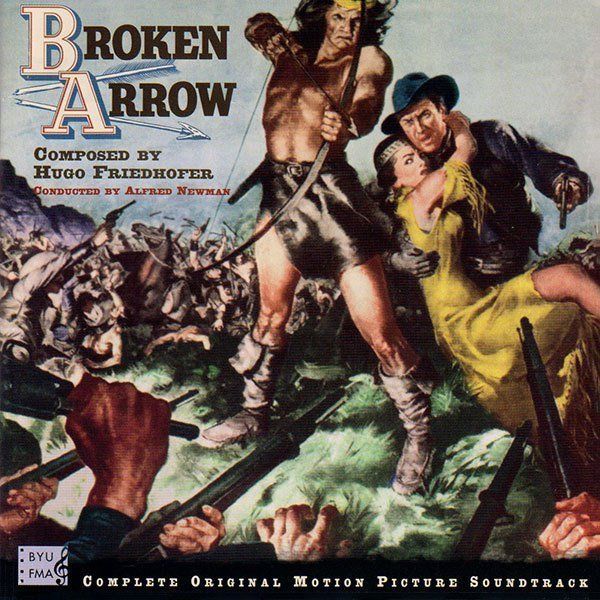
When Twentieth Century-Fox released BROKEN ARROW in late July 1950, the film had been completed for nearly a year. Darryl F. Zanuck, in charge of production at Fox, was waiting to see if James Stewart appealed to the public in his first Western, Universal’s WINCHESTER 73, which was made after BROKEN ARROW but released a little over one month ahead of the Fox film. He was also subjecting BROKEN ARROW to considerable editing revisions after director Delmer Daves had completed his work. (1) As it turned out, Stewart’s career shift from the likable boy next door to a psychologically complex cowboy protagonist was a success.
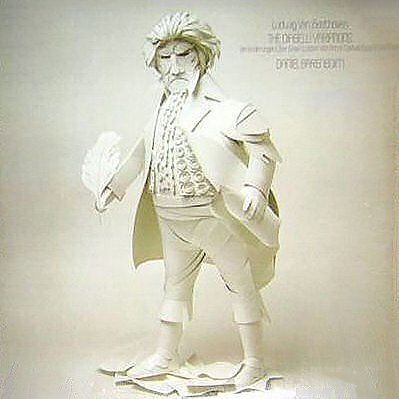
According to Gene Lees in Friends Along the Way, Hugo had several nicknames including ‘Hug’ and ‘The Red Baron’. Alfred Newman on the other hand would often refer to Hugo as ‘Johannes’ after Brahms, because of Hugo’s predilection for counterpoint in music. This nickname and the quotation “he truly was a master” by Tony Thomas are both well served given Hugo’s wisdom regarding, and connections to, the world of classical music. For example, his uncle Hans Koenig, a highly distinguished violinist with the San Francisco Symphony, trained with Joseph Joachim to whom Brahms dedicated his violin concerto. Hugo once wrote to the film music critic Charles Boyer (aka Page Cook) saying “a half-century of servicing the flicks is more than enough
Reviews

BOY ON A DOLPHIN (1957) is one of those great 20th Century-Fox “dramalogues” of the 1950s, i.e., escapist narrative films emphasizing international locations lushly shot in Fox’s new wide screen/stereophonic sound process, CinemaScope. DOLPHIN showcases Greece and deals with the search for a priceless antiquity, the shipwrecked golden statue of the title that is accidentally discovered by Phaedra, a buxom Greek sponge diver (Sophia Loren), in the waters around the island of Hydra. A dedicated archeologist (Alan Ladd) and an illegal collector (Clifton Webb) both vie for the statue and who gets it provides the intrigue in director Jean Negulesco’s entertaining and strikingly photographed film.
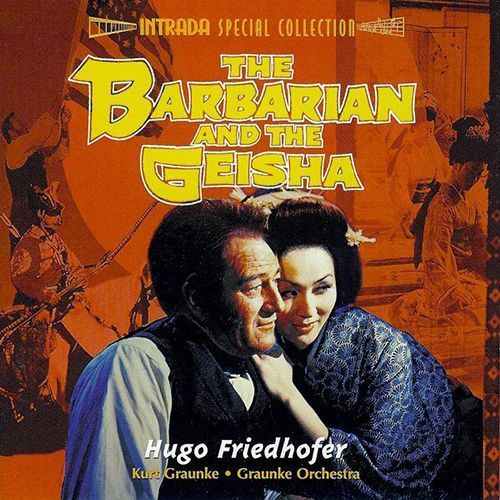
This latest effort in Intrada’s limited edition Special Collection is a lush, romantic score from Hollywood’s Golden Age. While the film, telling of a visit of American diplomats to Japan in 1856 and a subsequent romance between one of them (John Wayne) and a geisha girl, takes place in Japan (and originally director John Huston wanted Friedhofer to compose the music with purely Japanese instruments and music), Friedhofer chose to emphasize the American aspects of the story with Western music and instrumentation. There are a number of subtle Japanese variants included, but the overall perspective is one of American Hollywood film music.
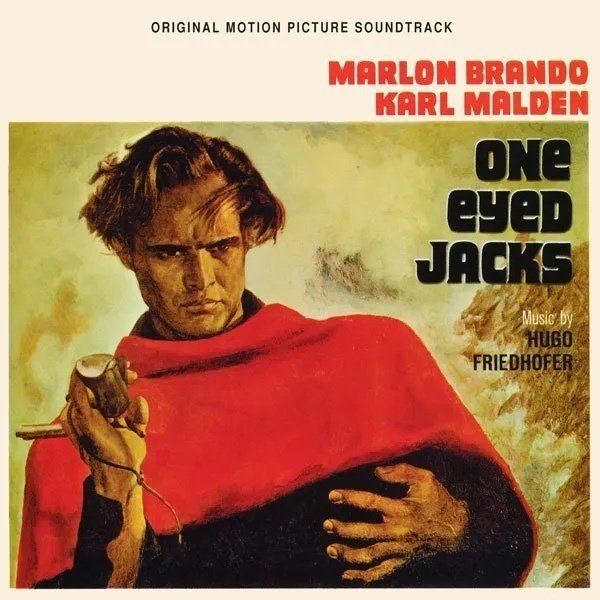
ONE-EYED JACKS did not receive a great deal of critical or public appreciation when the film opened in 1961 but for me it’s one of the all-time great westerns. On the surface it’s a traditional western of revenge but psychological elements and moral ambiguities provide the film with complexities which imbue the film with considerable more depth than the average western of the early ’60s. The acting, particularly that of Marlon Brando and Karl Malden is never less than compelling. Brando brings a fascinating brooding intensity to his role; seemingly always about to explode into anger. The dialogue is sparse but brimming with subtleties and the location filming is spectacular. What is not a matter of dispute is the quality of Hugo Friedhofer’s score which is one of his very best. He clearly expended much effort in composing the music; providing the film with some splendidly vigorous and romantic themes, bursting with melody and invention with a robust Mexican element, especially in his use of percussion, brass

The Bishop’s wife was fun. It remains to this day one of my favourite pictures. It’s a very warm and very charming picture. - Hugo Friedhofer recalling his score in 1974. Hugo Friedhofer’s score for the 1947 Samuel Goldwyn production of The Bishop’s Wife won him an Academy award nomination just one year after he had won the Oscar for best score for The Best Years of Our Lives. Friedhofer, it will be recalled, had orchestrated and arranged many, many scores for Max Steiner and Erich Wolfgang Korngold over at Warner Bros.



